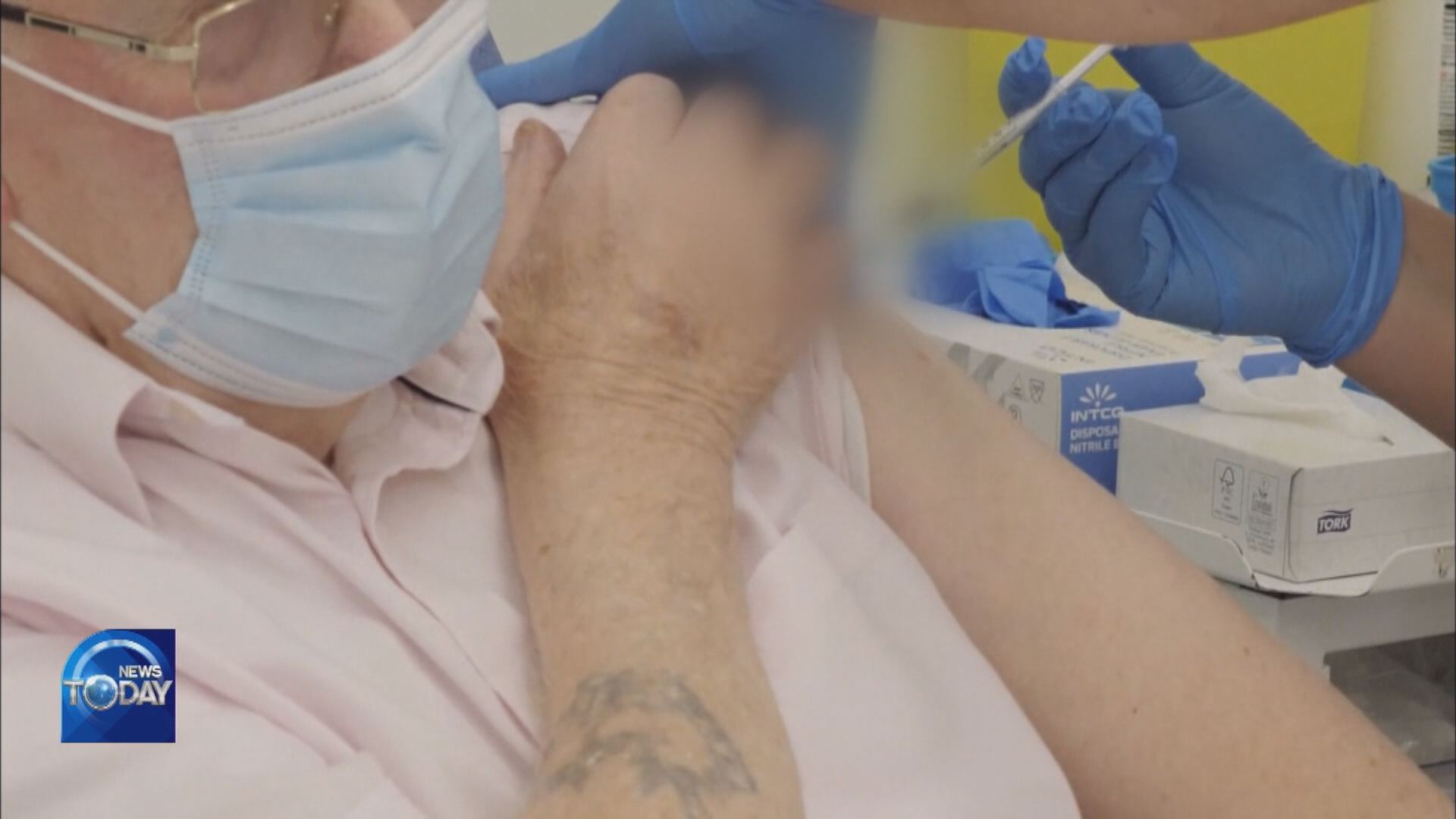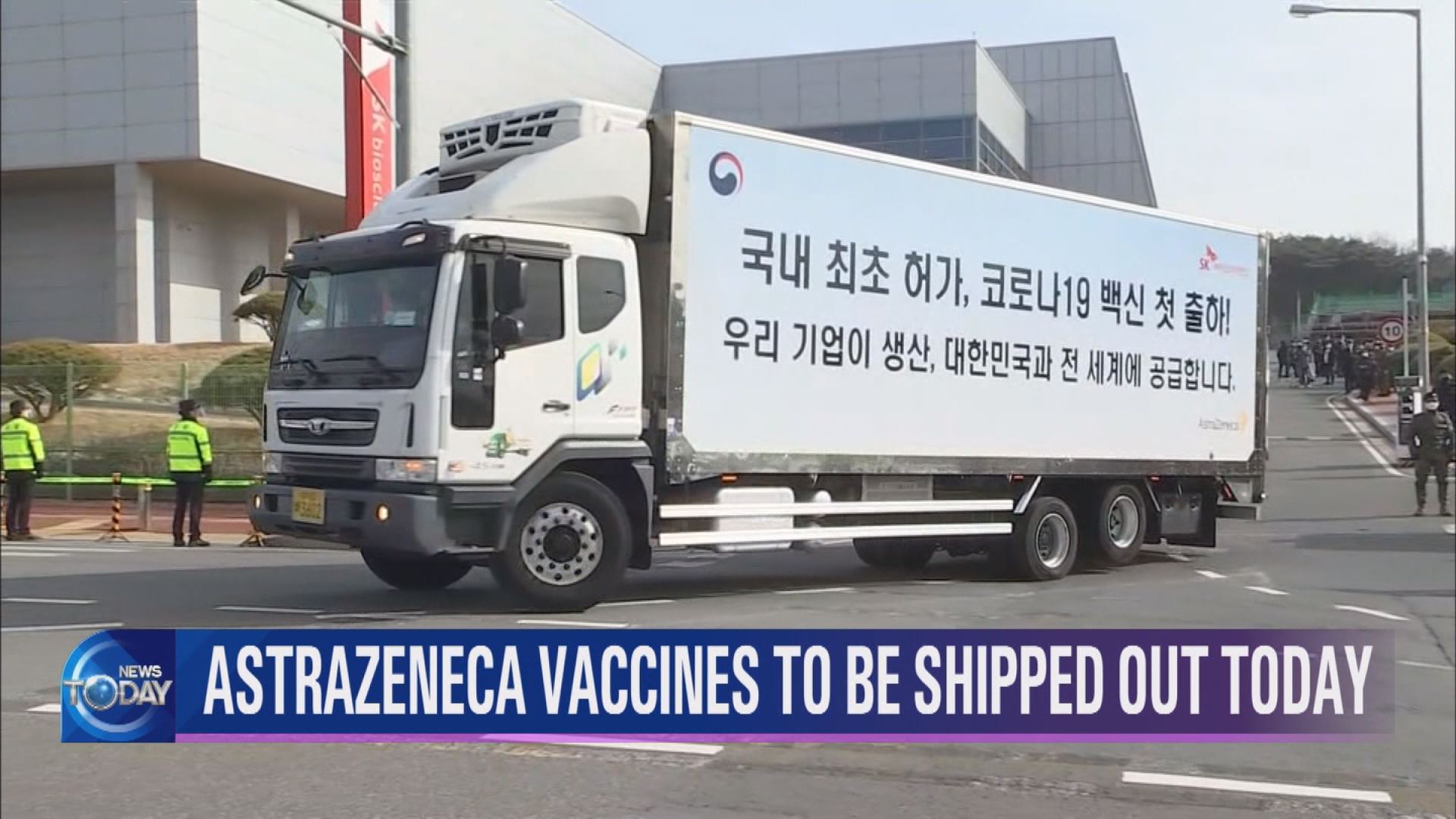CONCERNS OVER VIRUS VARIANTS INCREASE
입력 2021.02.24 (15:01)
수정 2021.02.24 (16:45)
읽어주기 기능은 크롬기반의
브라우저에서만 사용하실 수 있습니다.
[Anchor Lead]
Korean health authorities say that to achieve herd immunity by November, the nation needs a stable supply of vaccines, a high vaccination rate and swift response to Covid-19 variants. However, concerns are rising as a new study says the variants can stay infectious for five days more than the existing virus.
[Pkg]
Researchers at Harvard University have released a thesis explaining why COVID-19 variants pose a greater threat. They conducted a study on 65 pro-basketball players infected with coronavirus. The study showed that the UK variant survived in the body for 13.3 days on average, five days longer than the existing virus. The researchers also found that the virus reproduced in the body twice as long, and it took nearly 30 percent more time for the immune system to get rid of it. This means virus variants stay in the body longer. This leads to more severe symptoms, higher mortality rates, or stronger contagiousness.
[Soundbite] Kim Woo-joo(Prof., Korea Univ. Guro Hospital) : "The virus is shed for a longer period of time and can infect more people. The quarantine period may have to be extended."
Pharmaceutical companies are stepping up efforts to upgrade the already developed vaccines to make them respond to new variants. Moderna was first to start development of a new vaccine last month. Pfizer finished the manufacturing of a new vaccine last week and is considering clinical trials. AstraZeneca also plans to start the production of a new vaccine this coming fall. The USFDA says the new vaccines can be tested on fewer people, probably just hundreds, adding the results could be ready within two or three months. Meanwhile, Nottingham University in the UK has announced plans to manufacture a second-generation versatile vaccine that can respond to most of the COVID-19 variants. In Korea, the total number of variant cases currently stands at 128. Of those, more than 75 percent are imported and the community spread has been slow so far.
Korean health authorities say that to achieve herd immunity by November, the nation needs a stable supply of vaccines, a high vaccination rate and swift response to Covid-19 variants. However, concerns are rising as a new study says the variants can stay infectious for five days more than the existing virus.
[Pkg]
Researchers at Harvard University have released a thesis explaining why COVID-19 variants pose a greater threat. They conducted a study on 65 pro-basketball players infected with coronavirus. The study showed that the UK variant survived in the body for 13.3 days on average, five days longer than the existing virus. The researchers also found that the virus reproduced in the body twice as long, and it took nearly 30 percent more time for the immune system to get rid of it. This means virus variants stay in the body longer. This leads to more severe symptoms, higher mortality rates, or stronger contagiousness.
[Soundbite] Kim Woo-joo(Prof., Korea Univ. Guro Hospital) : "The virus is shed for a longer period of time and can infect more people. The quarantine period may have to be extended."
Pharmaceutical companies are stepping up efforts to upgrade the already developed vaccines to make them respond to new variants. Moderna was first to start development of a new vaccine last month. Pfizer finished the manufacturing of a new vaccine last week and is considering clinical trials. AstraZeneca also plans to start the production of a new vaccine this coming fall. The USFDA says the new vaccines can be tested on fewer people, probably just hundreds, adding the results could be ready within two or three months. Meanwhile, Nottingham University in the UK has announced plans to manufacture a second-generation versatile vaccine that can respond to most of the COVID-19 variants. In Korea, the total number of variant cases currently stands at 128. Of those, more than 75 percent are imported and the community spread has been slow so far.
■ 제보하기
▷ 카카오톡 : 'KBS제보' 검색, 채널 추가
▷ 전화 : 02-781-1234, 4444
▷ 이메일 : kbs1234@kbs.co.kr
▷ 유튜브, 네이버, 카카오에서도 KBS뉴스를 구독해주세요!
- CONCERNS OVER VIRUS VARIANTS INCREASE
-
- 입력 2021-02-24 15:01:11
- 수정2021-02-24 16:45:43

[Anchor Lead]
Korean health authorities say that to achieve herd immunity by November, the nation needs a stable supply of vaccines, a high vaccination rate and swift response to Covid-19 variants. However, concerns are rising as a new study says the variants can stay infectious for five days more than the existing virus.
[Pkg]
Researchers at Harvard University have released a thesis explaining why COVID-19 variants pose a greater threat. They conducted a study on 65 pro-basketball players infected with coronavirus. The study showed that the UK variant survived in the body for 13.3 days on average, five days longer than the existing virus. The researchers also found that the virus reproduced in the body twice as long, and it took nearly 30 percent more time for the immune system to get rid of it. This means virus variants stay in the body longer. This leads to more severe symptoms, higher mortality rates, or stronger contagiousness.
[Soundbite] Kim Woo-joo(Prof., Korea Univ. Guro Hospital) : "The virus is shed for a longer period of time and can infect more people. The quarantine period may have to be extended."
Pharmaceutical companies are stepping up efforts to upgrade the already developed vaccines to make them respond to new variants. Moderna was first to start development of a new vaccine last month. Pfizer finished the manufacturing of a new vaccine last week and is considering clinical trials. AstraZeneca also plans to start the production of a new vaccine this coming fall. The USFDA says the new vaccines can be tested on fewer people, probably just hundreds, adding the results could be ready within two or three months. Meanwhile, Nottingham University in the UK has announced plans to manufacture a second-generation versatile vaccine that can respond to most of the COVID-19 variants. In Korea, the total number of variant cases currently stands at 128. Of those, more than 75 percent are imported and the community spread has been slow so far.
Korean health authorities say that to achieve herd immunity by November, the nation needs a stable supply of vaccines, a high vaccination rate and swift response to Covid-19 variants. However, concerns are rising as a new study says the variants can stay infectious for five days more than the existing virus.
[Pkg]
Researchers at Harvard University have released a thesis explaining why COVID-19 variants pose a greater threat. They conducted a study on 65 pro-basketball players infected with coronavirus. The study showed that the UK variant survived in the body for 13.3 days on average, five days longer than the existing virus. The researchers also found that the virus reproduced in the body twice as long, and it took nearly 30 percent more time for the immune system to get rid of it. This means virus variants stay in the body longer. This leads to more severe symptoms, higher mortality rates, or stronger contagiousness.
[Soundbite] Kim Woo-joo(Prof., Korea Univ. Guro Hospital) : "The virus is shed for a longer period of time and can infect more people. The quarantine period may have to be extended."
Pharmaceutical companies are stepping up efforts to upgrade the already developed vaccines to make them respond to new variants. Moderna was first to start development of a new vaccine last month. Pfizer finished the manufacturing of a new vaccine last week and is considering clinical trials. AstraZeneca also plans to start the production of a new vaccine this coming fall. The USFDA says the new vaccines can be tested on fewer people, probably just hundreds, adding the results could be ready within two or three months. Meanwhile, Nottingham University in the UK has announced plans to manufacture a second-generation versatile vaccine that can respond to most of the COVID-19 variants. In Korea, the total number of variant cases currently stands at 128. Of those, more than 75 percent are imported and the community spread has been slow so far.
이 기사가 좋으셨다면
-
좋아요
0
-
응원해요
0
-
후속 원해요
0















![[단독] 윤석열 정부, ‘대통령실 공사비 미지급’ 피소](/data/news/2025/06/30/20250630_8MRvHk.png)

이 기사에 대한 의견을 남겨주세요.